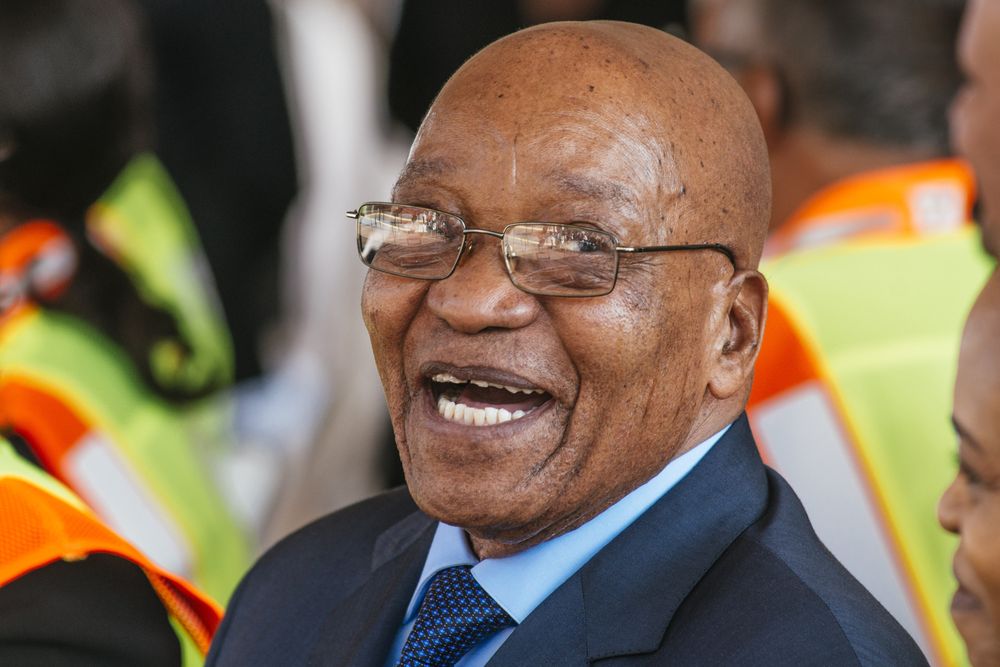
“Factionalism is a cancer that must be rooted out,” Zuma, 75, said Friday in his opening address to a six-day ANC conference in Johannesburg that will discuss issues ranging from land reform and ownership of the country’s mines to corruption. “We also need to look at the issue of ill-discipline in various forms, including public utterances attacking the movement by ANC leaders and members instead of handling matters within the organization and finding constructive solutions.”
The conference takes place as the 105-year-old ANC grapples with internal divisions over a graft scandal that’s implicated Zuma and some of his closest allies, and over who’ll succeed him as party leader in December and probably as president in 2019. A group of ANC veterans, who’ve urged Zuma to step down, boycotted the gathering after falling out with party bosses over what should be done to address the situation.
A recession, a 28 percent unemployment rate and a decision by two ratings companies to downgrade the nation’s sovereign credit rating to junk status after Zuma’s March 31 firing of the respected Pravin Gordhan as his finance minister have added to the public discord. Deputy President Cyril Ramaphosa, ANC Secretary-General Gwede Mantashe and party Treasurer-General Zweli Mkhize criticized Gordhan’s dismissal.
‘Leadership Crisis’
“I don’t think the policy conference can tackle the leadership crisis we are facing,” said Khulu Mbatha, a party veteran who argues that it failed to transform itself from a liberation movement into a modern political formation in his book, ‘Why the ANC Failed to Govern.’ “The policy conferences that have been held since the ANC came to power have not made it a better party. It’s all about who will come in and who will stay out.”
Since Nelson Mandela led to the ANC to power in Africa’s most industrialized economy after the first multiracial elections in 1994, it’s won more than 60 percent support in every national vote. Repeated allegations that Zuma has been party to the misuse and looting of state funds have eroded the party’s support, contributing to its loss of Johannesburg, the economic hub, and Pretoria, the capital, in August municipal elections.
‘Arrogant’ ANC
Zuma attributed the electoral losses to “the perception in society that we are soft on corruption, self-serving and that the ANC is arrogant.”
A former ANC spy chief, Zuma has faced accusations that he and some of his ministers have allowed the Gupta family, who are the president’s friends and in business with his son, to influence the appointment of cabinet members and given them special treatment to enable them to buy a coal business. Zuma and the Guptas denied wrongdoing.
In his speech, Zuma said he supported a judicial commission of inquiry into “state capture,” a term used to describe undue influence on government by private business interests.
Zuma has accused his detractors of racism and blamed the party’s declining fortunes on its failure to secure adequate control over the economy. He has backed land seizures without compensation and new rules to force mining companies to sell bigger stakes to black shareholders, measures that haven’t gone down well with investors.
Read more on Zuma’s policies hurting economy
“We are waiting for some real action to drive the important issues of the day, which are economic growth, solving unemployment, getting our credit rating sorted out and improving consumer and investor confidence,” said George Herman, chief investment officer at Citadel Investment Services in Cape Town.
The front-runners in the succession race are Nkosazana Dlamini-Zuma, 68, Zuma’s ex-wife, and the former chairwoman of the African Union Commission, who’s backed his policy pronouncements, and Ramaphosa, 64, who’s emphasized the need to root out corruption and implement existing policies more effectively.
Read how the ANC chooses its next leader
Neither leader will be able to mend the divisions in the ANC, which risks losing power nationally in 2019 elections, and the conference is unlikely to have a meaningful impact on policy, according to Benedict Dube, a political analyst at the Xubera Institute for Research and Development in the eastern port city of Durban.
“South Africans have evolved. They are no longer loyal to the ANC; now they are loyal to their needs,” he said. “They have made it clear in the recent local government elections. The policy conference is irrelevant. It’s the ANC who will fool itself if they think that people still have an interest in this soap opera.”

